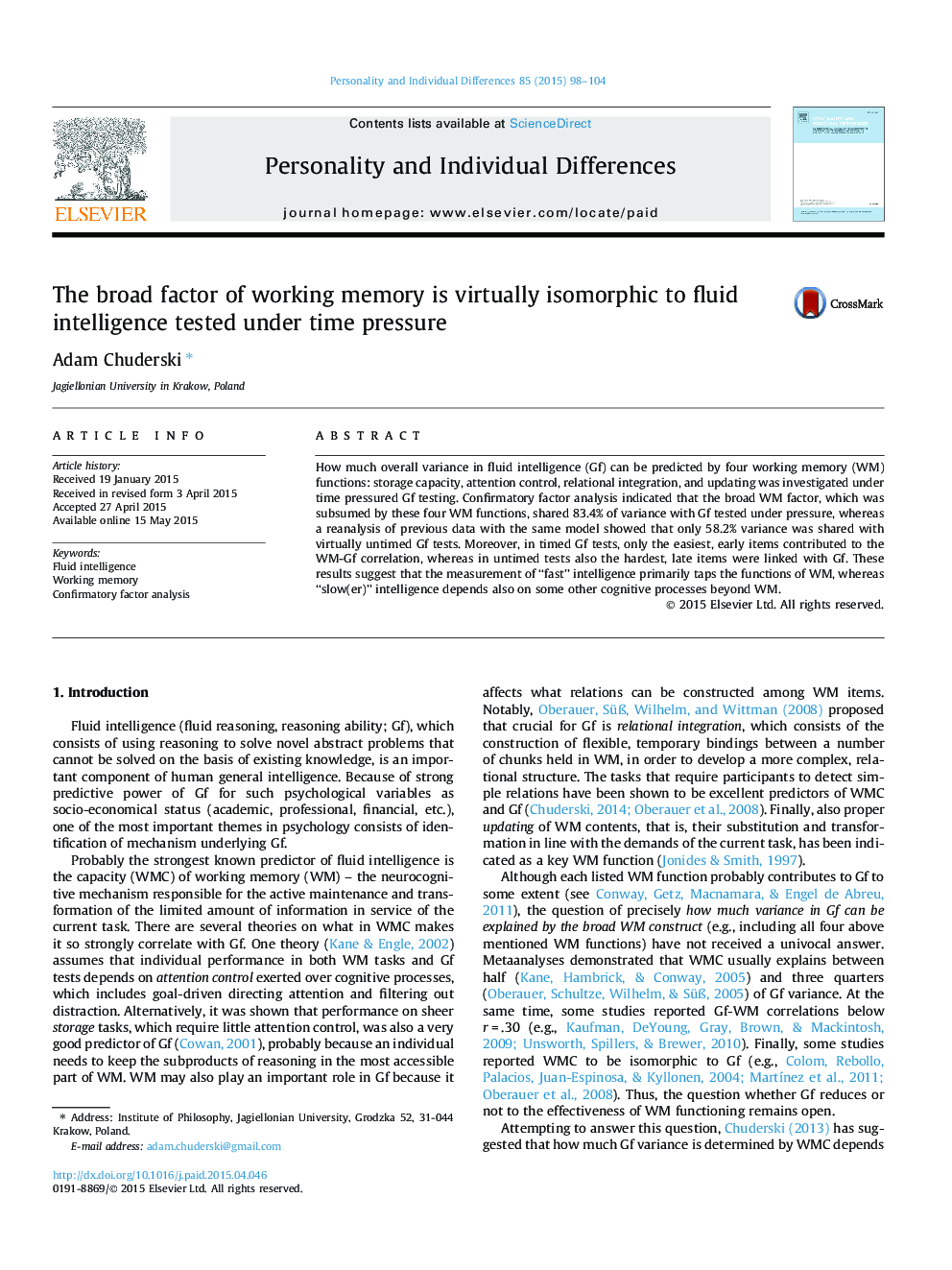| Article ID | Journal | Published Year | Pages | File Type |
|---|---|---|---|---|
| 7251220 | Personality and Individual Differences | 2015 | 7 Pages |
Abstract
How much overall variance in fluid intelligence (Gf) can be predicted by four working memory (WM) functions: storage capacity, attention control, relational integration, and updating was investigated under time pressured Gf testing. Confirmatory factor analysis indicated that the broad WM factor, which was subsumed by these four WM functions, shared 83.4% of variance with Gf tested under pressure, whereas a reanalysis of previous data with the same model showed that only 58.2% variance was shared with virtually untimed Gf tests. Moreover, in timed Gf tests, only the easiest, early items contributed to the WM-Gf correlation, whereas in untimed tests also the hardest, late items were linked with Gf. These results suggest that the measurement of “fast” intelligence primarily taps the functions of WM, whereas “slow(er)” intelligence depends also on some other cognitive processes beyond WM.
Related Topics
Life Sciences
Neuroscience
Behavioral Neuroscience
Authors
Adam Chuderski,
